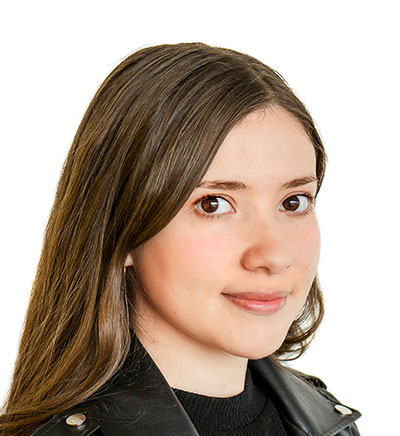Thermy, Enabling Access to Breast Cancer Early Detection

Thermy, Enabling Access to Breast Cancer Early Detection

Q: How have women reacted to Thermy’s test?
AM: We started testing in June 2018. To date, we have done about 3,800 tests. Of course, our penetration rate slowed down because of the pandemic. Our tests have uncovered around 140 breast cancer-positive cases. Our surveys of patients and their feedback suggest they have been quite satisfied with the process. One of Thermy's great advantages is that the test is completely painless. There is no contact with the patient. A photograph is simply taken from a distance of 2m. It is a private test and the nurse who does it never sees the patient exposed. In addition, doctors have the opportunity to see the scan in real-time on a monitor in front of them. The study is completely transparent and safe because we do not use radiation.
EH: Our goal is for Thermy to be the gateway to early detection. We have over 90 percent sensitivity at the moment and we are about to improve that to 95 percent. We have not had any false negatives. Thermy also has detected other pathologies besides cancerous tumors.
AM: These results are in line with mammography and ultrasound standards, which have between 80 and 90 percent sensitivity on average. Thermy is surpassing that sensitivity. By using artificial intelligence, we will get even better results by constantly feeding the algorithm. In five years, we want to reach the goal of 600,000 tests performed.
Q: If a woman tests positive or is suspected to be positive, what are the protocols for follow-up?
EH: Follow-up is very important for Thermy. Our alliance with the Breast Cancer Foundation (FUCAM) is key to our objective of being the gateway to early detection. The foundation offers comprehensive care to women, from awareness to treatment. Any risk case that Thermy detects is referred for a confirmation test, whether it is a mammography or an ultrasound. We want to replicate this with other health institutions in the medium term.
AM: We decided to ally with FUCAM because it is the leading breast cancer institution in Mexico and Latin America. It serves more than 7 percent of the population in Mexico. Just as Thermy is developing a premium and endorsed product, we want to be supported by the best breast cancer clinic.
Q: Where does Thermy stand in terms of commercializing its solution?
EH: We are in the process of obtaining the necessary certifications to commercialize the product. Initially, with the help of the Mexico City Ministry of Health, we developed a research protocol as the first step to comply with COFEPRIS’ registration requirements. Fortunately, we were able to put this protocol together and present it to FUCAM.
We are now in the process of refining the results of this research to publish them as soon as possible, which is a priority for us. At the same time, we have been completing certifications in the use of thermography, innovation and health. Moreover, in 2020, we started to generate a quality management system to meet the NOM-241 and ISO-13485. Applying for COFEPRIS certification is a long process but we are already working toward that. Our goal is to be ready by mid to late 2021.
AM: Our idea is to sell the device, which will include an annual software license. This license will enable certain tests to be done with the machine. However, we will also consider renting the service. In health systems, services often are purchased as packages and we are looking to adapt our commercial proposal to the needs of the market.
Thermy is a Mexican startup that has designed a device to detect breast cancer in its early stages using a thermal camera, resulting in a painless process with faster results. Since 2018, the company has performed more than 3,800 tests


 By Andrea Villar | Editorial Manager -
Thu, 06/17/2021 - 05:00
By Andrea Villar | Editorial Manager -
Thu, 06/17/2021 - 05:00










